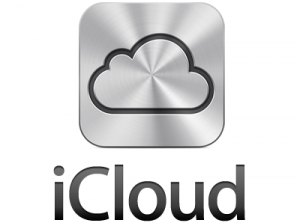 Technology is an ever-shifting paradigm, as evidenced by the forthcoming Chromebook and last week’s announcement of Apple’s iCloud. When I first started working with computers no one knew what an iPod was and very few people had palm pilots (remember those!?). A major important shift that I’m seeing in technology nowadays is the move to the cloud or online based computing. With this shift, I see several inherent drawbacks for users and businesses alike but there are also several areas of promise. Over the next week I will take a look at the inherent drawbacks and the good possibilities that the future holds with the advent of cloud computing. Additionally, we will be looking at the benefits of cloud computing and end users can benefit from this shift.
Technology is an ever-shifting paradigm, as evidenced by the forthcoming Chromebook and last week’s announcement of Apple’s iCloud. When I first started working with computers no one knew what an iPod was and very few people had palm pilots (remember those!?). A major important shift that I’m seeing in technology nowadays is the move to the cloud or online based computing. With this shift, I see several inherent drawbacks for users and businesses alike but there are also several areas of promise. Over the next week I will take a look at the inherent drawbacks and the good possibilities that the future holds with the advent of cloud computing. Additionally, we will be looking at the benefits of cloud computing and end users can benefit from this shift.
What is Cloud Computing?
Cloud computing can be a vague term meaning several things. In the simplest sense the term can mean “online access to and storage of files and media traditionally stored one’s ‘local’ desktop”. In a more pure form, cloud computing is referred to as “interconnected but independent web apps accessed in a strictly online sense with little or no dependence of a local computer or storage apparatus”. The processing or ‘thinking’ power, a key component, is accomplished by the local machine in the first instance (largely described as a glorified online storage system with built-in sharing and viewing capabilities) and is handled by the online server rather than the local computer in the second definition, harkening back to the old ‘mainframe’ with a terminal which accesses different ‘offsite’ programs. Whatever the chosen application, the way consumers interact with their files is changing and that change will present many hurdles for consumers and companies alike.
Marriage – Much More Than Just Mac or PC
Right now, most of us are ‘married’ to a computer system. Each of us has a computer, with our files, our settings, our programs, etc. We have the luxury of being able to choose which online (cloud-based) web services we use – for example, I can choose to use outlook for my email, you can choose to use Gmail, and another person can choose to use any email program/provider he or she wishes. Consumer based cloud computing, as it is presented by Google, Apple, and Microsoft requires a ‘buy in’ to several interconnected programs without the ease of choice that we are used to right now. For example, if I choose to use Google Calendar but want to seamlessly send contacts from my hotmail account I am out of luck unless I choose to use Google’s Gmail. Although you are free to choose whatever services you want to mash together, companies offering cloud-based services are restricting users more to their own applications rather than offering choices from competitors for integrated services. This will eventually require a user to be married to a singular cloud system, whether it be Google, Apple, Microsoft or another unknown system based on their desired programs – not unlike the way that operating systems function today. It seems very unlikely, as an example, that Google and Microsoft’s cloud based system will allow seamless connection/syncing with each other or to services like Apple’s document manager (iWork) and iTunes or their iPhone, iPad, and iPod devices — all of which will reside in the cloud.
Cloud computing is an exciting trend and is changing the way we use our computers. Stay tuned for our thoughts on data recovery, security, consumable hardware, and ease of use in the ‘cloud’ as our series on cloud computing continues.
In the meantime, share your thoughts on the use of online applications; do you feel like you are ready to trade in your computer and put everything online?
